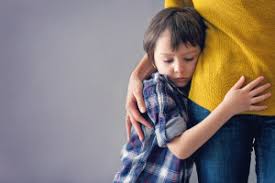Overlooked Details When Hiring A Family Law Attorney
What is the difference between juvenile court and family court?
The legal system is complex, and often, it can be hard to understand each individual branch of such a massive entity. Two of the most commonly confused courts are juvenile and family, and many people do not know the difference between the two. They are similar in many ways: for example, they are both key parts of the court system. They have many striking differences as well. An attorney who handles family law is a specialist in his field; and one who assists minors in juvenile court works with a completely different set of rules.
Family Court
Family courts have a limited amount of jurisdiction in terms of law, but they do handle virtually all cases related to the family unit. Cases frequently tried in family court include:
- Divorce
- Guardianship
- Domestic violence
- Child custody
- Parental competence
Family courts most often handle child custody and divorce cases. Depending on the nature of the situation, some cases may be tried in formal proceedings instead of courtrooms.
In family court, attorneys, social workers, and members of the community may participate along with the family members involved. The court strives to resolve differences, and in many situations, mediation will be utilized instead of litigation. Family courts are also instrumental in providing families with the resources they need to solve their problems.
Juvenile Court
Unlike family court, juvenile court deals primarily with minors who have been accused of engaging in criminal behavior. Juvenile courts, unlike adult criminal courts, only utilize civil proceedings. This means that instead of an actual crime, juveniles can only be charged with delinquent acts. Juveniles who are accused of crimes are brought into court when a probation officer or prosecutor files a civil claim. Juvenile courts strive to act in the best interest of the minors they are entrusted with.
In general, any individual under the age of 18 may be tried in juvenile court. Periodically, juveniles accused of serious crimes may be tried in adult courts. However, the vast majority of juvenile cases involve petty crimes such as theft, disorderly conduct, drug abuse, and simple assault. Juvenile court is usually less formal than adult criminal court.

Differences between adult and juvenile criminal court:
1. COMPLAINT VS. PETITION
In adult court the defendant is charged by using a document called a “complaint”, whereas in juvenile court, the child is charged with a document called a “Petition”
2. NO JURIES
In most jurisdictions, including Minnesota, when juvenile cases go to trial, the child is not afforded a jury trial like in adult court. Rather, one judge is the finder of fact at a trial. While difference makes for shorter trials since the lawyers do not have to spend days picking a jury, the juvenile and his/her lawyer do not get the benefit of multiple finders of fact. The child is still considered innocent until proven guilty, the prosecutor only has to convince one person of guilty beyond a reasonable doubt, verses an entire jury.
3. CONVICTION VS. ADJUDICATED DELINQUENT
In adult court if the defendant is found guilty, they are “convicted”, whereas in juvenile court the child is “adjudicated delinquent”.
4. SENTENCE VS. DISPOSITION
After a defendant is found guilty in a criminal case he/she will have a sentencing to determine punishment, whereas in juvenile court there is a “disposition” to determine what should happen to the juvenile.
5. WHERE THE “DISPOSITION” IS HELD
In adult court the defendant has all of his/her hearings in the county in which they have been charged, which is generally the county in which the offense took place. In juvenile cases, the case is charged in the county where the offense took place and that is where the case will be tried or a plea of guilty will be entered. However, if the child resides in a different county then the “disposition” of the case is generally moved to the county of residence.
6. REHABILITATION VS. PUNISHMENT
The system in juvenile court is much more focused on the best interests of the child, and trying to make sure they are rehabilitated prior to becoming an adult. There is much more emphasis on treatment, therapy, and education rather than just punishment.

Probate Court And Dependency Court Termination Of Parental Rights:
Parental rights may be terminated where:
- 1 or both parents do not have legal custody
- Child out of parent’s custody for 2 years
- Child would benefit from adoption by guardian
- The “unfitness” standard is falling out of favor with the courts and is being replaced with the “best interests of the child” standard under the Family Code.
- Recent case has held that only some showing of unfitness is necessary and that can be a PAST unfitness. Held unfitness is not as appropriate test “best interests of the child” because “unfitness”
- Does not account for child’s interest in stability and permanency
- Does not account for guardian’s substantial interest
- Due process requires a finding of unfitness and DETRIMENT (in both Probate and Juvenile courts) by clear and convincing evidence before parental rights may be terminated.
- At the Juvenile Court’s dispositional hearing, a finding that there exists a SUBSTANTIAL danger to the children unless removed from offending parent – is a finding of DETRIMENT.
- Thus, a non-offending parent who has never been found to be unfit by the Ct may NOT have his/her parental rights terminated in Dependency Proceedings. Example: Father who was homeless and so didn’t ask for child, was not unfit nor was he a detriment to the child.

What are Some Methods Of Rehabilitating Juvenile Offenders?
Juveniles may be detained in a juvenile facility as part of the disposition of their case. They may also be required to perform community service and complete parole.
The focus with juveniles is to rehabilitate them and reintegrate them into their communities in a positive way. Families are involved in a juvenile’s case. Parents may be required to make restitution, or pay fines, for their child’s offenses.
Under the CYPA, the Youth Courts essentially deal with three types of cases:
- Cases involving youths who commit offences (Youth Arrest cases);
- Cases involving youths who are in need of guidance (Family Guidance cases); and
- Cases involving the protection of children (Child Protection cases).
Under the framework of the Youth Courts, court processes have been strengthened and new and better practices have been put in place to provide for more effective early intervention measures for these cases.